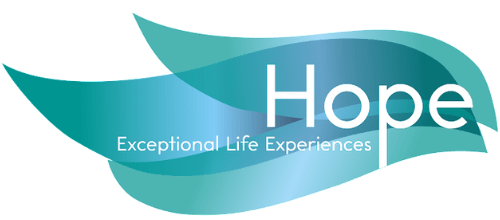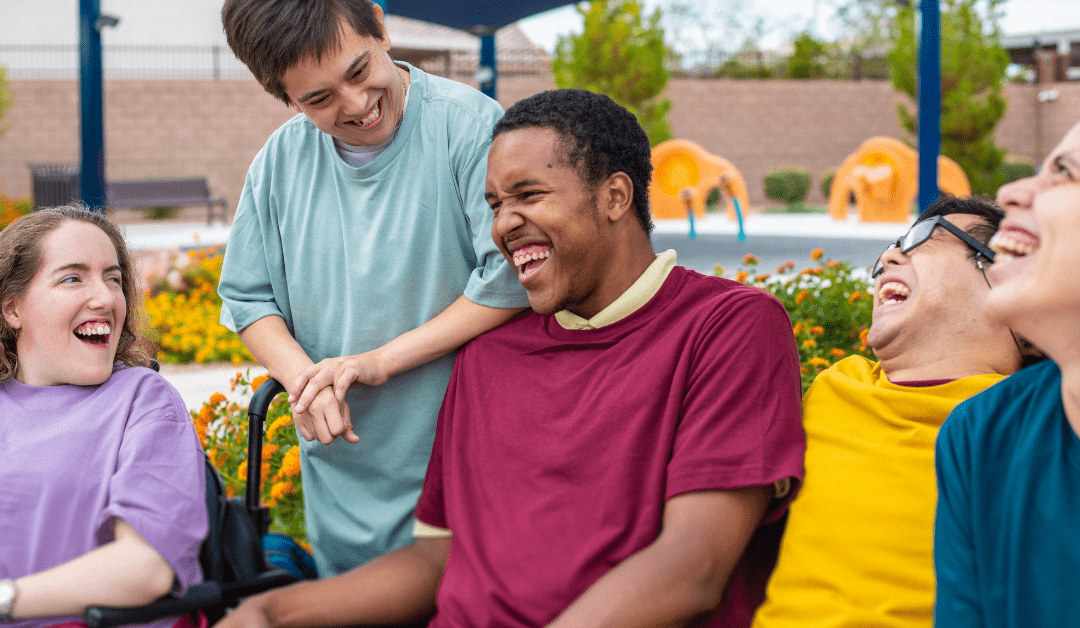Developmental disabilities impact how people learn, move, communicate, and interact with the world.
But here’s the thing—they don’t define a person’s potential! With the right support, individuals with developmental disabilities can thrive, succeed, and live fulfilling lives.
Whether you’re a parent, teacher, caregiver, or just someone curious about the topic (we love a lifelong learner!), understanding developmental disabilities helps create a more inclusive and supportive world.
Let’s break it all down—from what these disabilities are, to when we recognize Developmental Disabilities Awareness Month, to the different types of conditions that fall under this umbrella.
What Are Developmental Disabilities?
Think of developmental disabilities as conditions that shape how a person learns, moves, speaks, or interacts with others. They typically show up early in life and can last a lifetime—but with the right resources and support, individuals can learn skills, gain independence, and achieve great things.
These disabilities can be caused by:
- Genetics (such as Down syndrome or Fragile X syndrome)
- Complications at birth (premature birth, low oxygen levels)
- Environmental factors (prenatal exposure to toxins or infections)
- Brain injuries or developmental delays
While developmental disabilities can present challenges, early intervention, therapy, and community support can make a huge difference.
When Is Developmental Disabilities Awareness Month?
March is Developmental Disabilities Awareness Month—aka the perfect time to break stereotypes, spread inclusion, and celebrate the abilities of individuals with developmental disabilities!
Why It Matters:
- Encourages inclusion in schools, workplaces, and social spaces.
- Increases awareness of the challenges and strengths of individuals with developmental disabilities.
- Advocates for more accessible resources, like therapy, education programs, and assistive technology.
- Celebrates achievements, because people with developmental disabilities are out there doing amazing things all the time.
It’s about focusing on what people can do, rather than their limitations.
List of Developmental Disabilities
There’s a wide range of developmental disabilities, each with its own characteristics and support needs. Here’s a rundown of some of the most common ones:
1. Intellectual Disability (ID)
Intellectual disability affects cognitive skills like reasoning, problem-solving, and communication. It varies in severity and is usually diagnosed before age 18.
Signs & Symptoms:
- Delayed learning and problem-solving
- Difficulty with communication
- Challenges with daily living tasks like self-care and social interactions
Support Options:
- Individualized education programs (IEPs)
- Life skills training
- Occupational and speech therapy
2. Autism Spectrum Disorder (ASD)
Autism affects communication, behavior, and how a person experiences the world. Since it’s a spectrum, each person has unique strengths and challenges.
Common Signs:
- Differences in social interaction and communication
- Repetitive behaviors or strong preferences for routine
- Sensory sensitivities (to lights, sounds, textures, etc.)
Support Options:
- Applied Behavior Analysis (ABA) therapy
- Speech and occupational therapy
- Social skills training and sensory-friendly environments
3. Cerebral Palsy (CP)
Cerebral palsy is a motor disability caused by brain damage before, during, or shortly after birth. It affects movement, posture, and muscle coordination.
Symptoms:
- Muscle stiffness or weakness
- Difficulty with balance and coordination
- Speech or swallowing challenges
Support Options:
- Physical therapy to improve mobility
- Assistive devices (wheelchairs, braces, or walkers)
- Speech and occupational therapy
4. Attention-Deficit/Hyperactivity Disorder (ADHD)
ADHD affects focus, impulsivity, and energy levels. While often associated with children, many adults have it too!
Common Signs:
- Difficulty focusing or staying organized
- Impulsivity and trouble following instructions
- High energy levels and restlessness
Support Options:
- Behavioral therapy and coaching
- Medication (such as stimulants like Adderall or Ritalin)
- Classroom accommodations and individualized learning plans
5. Down Syndrome
Down syndrome is a genetic condition caused by an extra copy of chromosome 21. It affects cognitive development and physical growth.
Common Features:
- Delayed speech and motor skills
- Distinct facial features
- Increased risk of heart conditions and other health concerns
Support Options:
- Early intervention programs
- Speech and physical therapy
- Inclusive education and employment training
6. Fetal Alcohol Spectrum Disorders (FASD)
FASD results from alcohol exposure during pregnancy, affecting brain development, learning, and behavior.
Common Symptoms:
- Learning difficulties and memory issues
- Poor impulse control
- Physical growth deficiencies and unique facial features
Support Options:
- Special education programs
- Behavioral therapy
- Life skills training
7. Speech and Language Disorders
Some individuals have developmental disabilities that primarily impact communication, affecting how they express and understand language.
Examples:
- Stuttering
- Expressive or receptive language disorders
- Apraxia of speech (difficulty coordinating mouth movements)
Support Options:
- Speech therapy and communication devices
- Social skills training and language-based interventions
8. Learning Disabilities
Learning disabilities don’t impact intelligence, but they affect how a person processes information, reads, writes, or does math.
Examples:
- Dyslexia (reading difficulties)
- Dyscalculia (math difficulties)
- Dysgraphia (writing difficulties)
Support Options:
- Specialized teaching methods
- Extra time on tests and assignments
- Assistive technology (like audiobooks or text-to-speech software)
How to Support Individuals with Developmental Disabilities
People with developmental disabilities bring incredible strengths and perspectives to the world. But let’s be real—society still has work to do in making sure everyone has equal opportunities. Here’s how we can all help:
- Encourage Inclusion: Every person deserves a seat at the table—in school, work, and social settings.
- Advocate for Accessibility: Push for policies that support accessibility in education, employment, and public spaces.
- Educate Yourself & Others: Knowledge is power! Learning about developmental disabilities helps break stereotypes and build empathy.
- Focus on Strengths: Instead of focusing on limitations, celebrate what people can do.
Final Thoughts on Developmental Disabilities
Understanding developmental disabilities isn’t just about awareness—it’s about action, support, and inclusion. These conditions might come with challenges, but they also bring opportunities for growth, innovation, and connection.
By advocating for accessibility, embracing neurodiversity, and supporting individuals with developmental disabilities, we can create a world where everyone has a chance to shine. Whether it’s celebrating Developmental Disabilities Awareness Month or simply being more inclusive in daily life, every little effort counts.
Because at the end of the day, it’s not about labels—it’s about people, their potential, and making sure everyone has the chance to live their best life.
Want A Helping Hand?
Hope Human Services provides disability services in Washington State. Our team doesn’t just provide support, we create exceptional life experiences.

